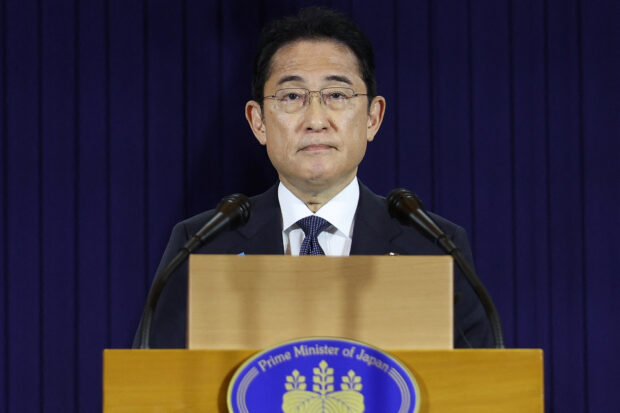
Japanese Prime Minister Fumio Kishida attends a press conference, on the second day of the G20 summit, in New Delhi, India, Sept 10, 2023. REUTERS/Anushree Fadnavis
Japanese Prime Minister Fumio Kishida said he plans to reshuffle his cabinet as early as Wednesday, and will compile a package of “drastic” economic measures soon after to boost the country’s fragile recovery.
“I’m thinking of conducting a personnel change of party leadership and of the cabinet as early as the 13th,” Kishida told a press conference in New Delhi on Sunday, on the sidelines of a G20 summit meeting.
“On economic measures, I want them to protect the people’s lives from price hikes and to reinforce the trend of wage increases and investment expansion. I want to carry out drastic steps, supported firmly by a necessary budget,” he said.
READ: Japan keeps growth focus but signals end to crisis-mode fiscal largesse
Kishida said last month that he planned to compile a package of economic measures in September.
Kishida has seen his approval ratings plunge after a series of government mishaps in implementing a policy to integrate people’s tax and social security data into a single identification card.
Data last week showed Japan’s economy grew less than initially estimated in the second quarter and wages slumped in July, casting doubt over central bank projections that solid domestic demand will keep the country on course for a recovery.
READ: Japan downgrades Q2 GDP growth on soft capital spending
Asked about the G20 Leaders’ Declaration, which avoided condemning Russia’s invasion of Ukraine, Kishida said it was “significant” that all G20 members including Russia have agreed on such terms as “all states must refrain from the threat or use of force to seek territorial acquisition.”
Last year, the G20 adopted a declaration saying most members strongly condemned the war in Ukraine, signaling that Russia opposed the wording.
Through his week-long trip to Indonesia and then to India, Kishida took every opportunity to gain understanding among foreign leaders about the safety of Japan’s release of treated radioactive water from the Fukushima nuclear power plant.
Japan started releasing the water into the Pacific last month, a key step to move forward the decommissioning of the wrecked plant, triggering strong protests from China, which has banned seafood imports from Japan.
“Many countries already viewed the process of discharge as safe and transparent. I feel now that such understanding has spread further,” Kishida told the press conference.
Japan intends to continue pressing China to lift the import ban immediately, he said.